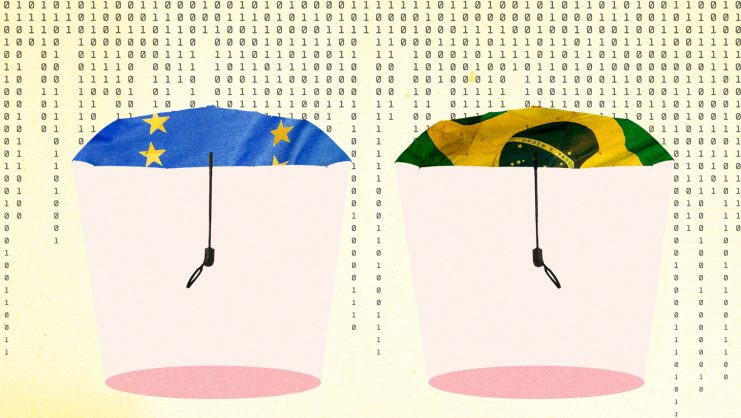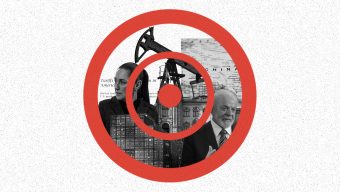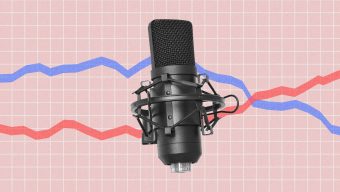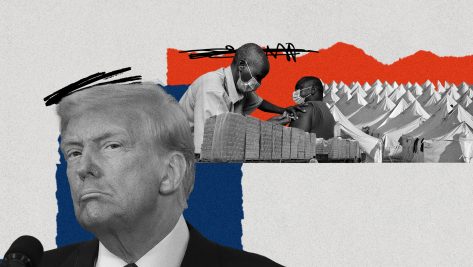Last Sunday, Argentina held the second round of its presidential elections. Javier Milei won in a landslide victory.
Milei will be sworn in as President on December 10 for a four-year term. He won 55.7% of the almost 27 million votes cast, while Sergio Massa, the ruling party’s candidate and current Economy Minister, obtained 44.3%.
Surprise
Given this staggering 11.4% difference between the two contenders, the first word that springs to mind is surprise. All the polls touted Milei as being the likely winner, but with just a small two to three-point lead over Massa. Yet, most of us were skeptical even of this, given the ruling party’s control of the electoral mechanisms, which could have watered this lead down. Therefore, Milei’s landslide victory came as a huge and highly unexpected shock.
Milei won 21 of the 24 electoral districts (23 provinces and the city of Buenos Aires.) Effective control of the electoral process was key to this outcome, with observers ensuring transparency throughout the day. The victory was overwhelming in provinces such as Cordoba (the country’s second-largest electoral district after the province of Buenos Aires), where Milei secured 74% of the votes, and Mendoza, with more than 71%. Milei also defeated Massa in the city of Buenos Aires with 57% of the electorate choosing him in the ballot box.
Peronism only won in the northern provinces of Formosa and Santiago del Estero (two fiefdoms which have long been run by local caudillos, where the main source of employment is the public sector) and in the province of Buenos Aires which, as the largest area in terms of votes, was significant.
Ten million people voted in the province of Buenos Aires (out of the nearly 28 million votes cast across the country), giving Massa the edge with 50.7% of the total, compared to Milei’s 49.3%. Massa received massive support in the municipalities that make up the industrial belt around Buenos Aires city known as Greater Buenos Aires, while Javier Milei dominated the polls in the rest of the province. As the difference was so small, the victory in this province was not enough for the ruling party to win the elections at the national level.
Prudence
This landslide result triggered mass euphoria among the followers of “The Lion,” as Milei is called. However, unlike his previous histrionic performances, Milei showed more caution in his Sunday night speech, revealing just how much he has learned since the first round of the elections less than a month ago.
The origin of the word prudence (which comes from the Latin “procur-videntia”) means foresight or wisdom in looking ahead. As Machiavelli suggests in The Prince, “prudence is a practical wisdom that enables the planning of actions over time”. If Milei does not grasp this idea once the initial euphoria dies down, his government won’t last long – but it seems he has indeed begun to take note.
Although he won 56% of the votes, Milei should not forget that 44% of the Argentine electorate, who voted for Massa, still prefers populist, state-oriented policies. This group may become a source of permanent conflict for Milei, depending on the future decisions taken by his government.
Poor decisions could undermine the strength of Milei and his government and jeopardize his mandate.
Additionally, there are two structural factors that demand caution. Firstly, Milei’s weakness in the National Congress and, secondly, the lack of a party structure to help him govern effectively. Although he has won the elections, Milei has only 38 representatives out of the 257 that make up the lower house of the National Congress, and only eight senators out of a total of 72 in the Senate. Thus, without a legislative majority, Milei will need to reach agreements with other parties to draft and pass laws that will enable him to govern within an institutionally stable legal framework. Moreover, we must not lose sight of the fact that Milei is a newcomer to politics. He lacks a network of “loyal” supporters which would give him effective control over the different levels of the complex Argentine public sector.
Both factors (legislative power in the two houses of the National Congress and the bureaucratic structure of government) may be furnished or provided by what is left of Juntos por el Cambio (a party that seems to be on its last legs), and who are loyal to Mauricio Macri and Patricia Bullrich, who have already given their support to Milei. The fact that his Vice-President -Victoria Villarruel- has strong links with the Armed Forces also partially guarantees institutional support for a democratic government, which is legitimized by the ballot box.
On Sunday night, Milei’s speech, given in a restrained, conciliatory tone previously unheard of, included the comment that all those who embrace the ideas of freedom will be welcome, wherever they come from.
We will have to wait a few days to see how his government takes shape and what measures he takes in the short term. Poor decisions could undermine the strength of Milei and his government and jeopardize his mandate. This is why he announced on Sunday that he will not tolerate violence. Yet, he was vague about what steps he intends to take, saying “There is no room for the violent, for those who break the law to defend their privileges. We will be relentless. There is no room for gradualism, for lukewarmness, or for half-measures.”
The deployment of “non-gradual” measures must nevertheless consider the possible social upheaval that could turn his presidency into a living nightmare. It is significant that, during the last few years of Peronist government, marked by growing insecurity, corruption scandals, and hyperinflation, there have been almost no strikes or demonstrations by unions and social organizations, as opposed to the scenario during Mauricio Macri’s term in office. When they feel like it, Peronism and its supporters are experts in “setting the streets on fire” and generating regular and widespread mayhem.
Prudence should also guide Milei in foreign relations, especially in the relationship with the Church and the Pope, and with the countries that have socialist governments, particularly Brazil and China, which are Argentina’s two main trading partners, not to mention in relations with the United States. And yet…
Foreign policy mistakes
First mistake. Milei repeatedly criticized the figure of Pope Francis, seeming to forget not only that he is the head of the Catholic Church but also an Argentinean, in a country where the Church still has a lot of clout.
Second mistake. Milei not only threatened to torch the Central Bank during his firebrand rants, but also announced that he would break off relations with socialist countries if he won, making the hair of many voters stand on end, especially those in the countryside and in industry. Milei failed to grasp that Brazil is Argentina’s main trading partner and that China is its largest agri-food sector customer. In fact, exports to China are the most important source of foreign exchange revenue. It should also be remembered that many of the countries in the region (Chile, Colombia, Venezuela) have socialist governments, and that diplomatic relations between states go beyond the personal affinities between their leaders.
Now that he is the President, he will need a cooler head and rebuild relations on all these fronts. Although he was congratulated by Bolsonaro and Donald Trump, Milei will still have to try to get along with the socialist leaders in power in the region, taking into account that his peers will have to do the same. In this sense, the fact that Brazilian President Lula da Silva, Colombian President Petro, and Chilean President Boric all congratulated the new government is encouraging. In addition, the backing of China and the United States is crucial financially, given Argentina’s foreign debt commitments.
Hope: the immediate future
In these elections, the Argentinians picked a candidate who had triggered widespread fear and uncertainty, in the hope that Milei will now use order and stability as a way to put the country back on the road to growth. What remains to be seen is whether the Argentine people will be sufficiently mature and resilient to understand that this process is not going to be easy. And it will involve adjustments which, sooner or later, will end up being painful and costly for many of them.
For now, we must balance optimism with skepticism in regard to the measures that Milei may announce in the next few weeks. They will be crucial to mark the success (or failure) of his term in office. The conservative German newspaper Frankfurter Allgemeine Zeitung has predicted that “the lion will turn into a cat.” This would be great news indeed if the President’s ferocity could be turned into cunning and astuteness, qualities that have been recognized in this small feline since ancient Egypt.
A version of this article originally ran in Spanish in Expansión.
© IE Insights.











